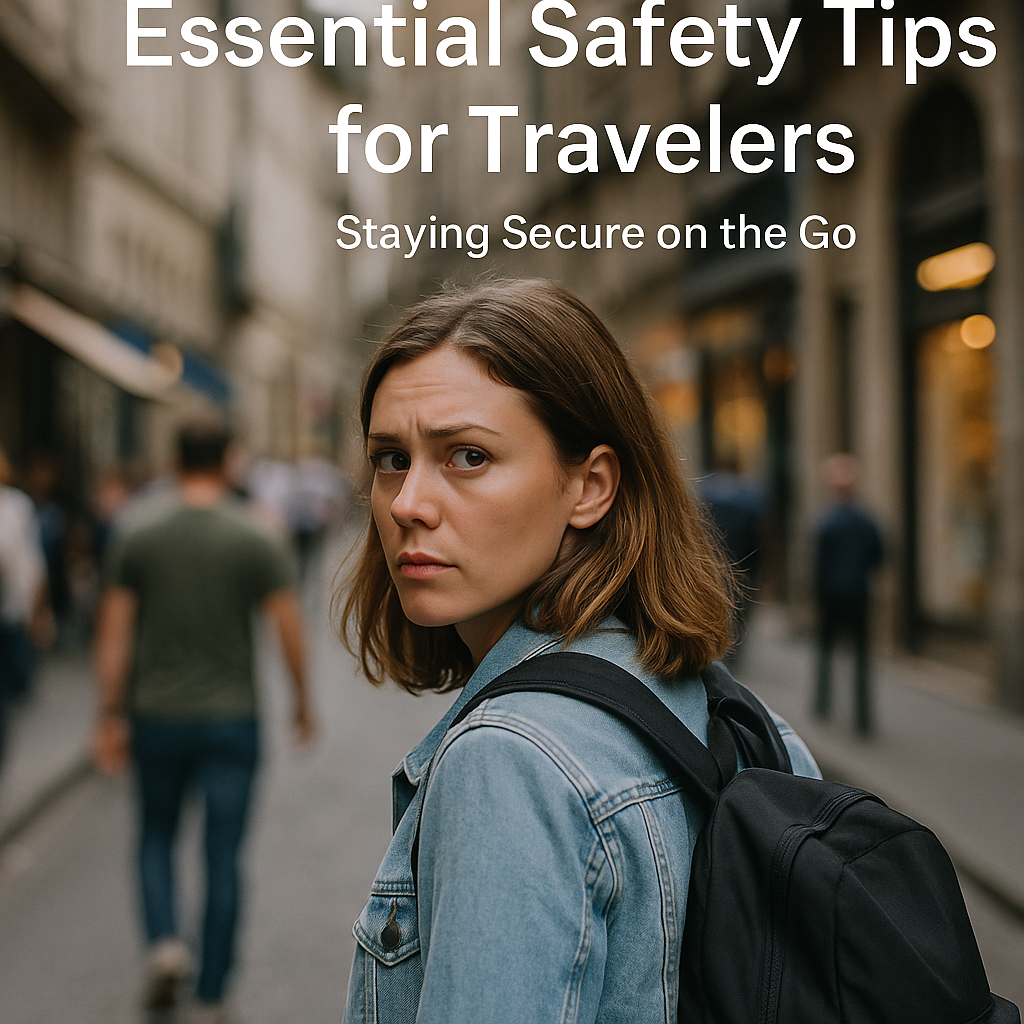Travel is a thrilling and enriching experience, but it’s important to stay alert and protect yourself while exploring new places. Whether you’re navigating a bustling city or a quiet rural village, personal safety and awareness should always be part of your travel plan. Here’s a complete guide to staying safe during your adventures—so you can enjoy your trip with peace of mind.
Why Safety Should Always Come First
No matter how experienced a traveler you are, unexpected situations can arise. Being prepared can help you:
- Avoid scams and petty theft
- Handle emergencies with confidence
- Protect your belongings and personal information
- Travel with more peace of mind
Travel safety is not about paranoia—it’s about being smart and prepared.
1. Do Your Research Before You Go
Understanding your destination before arriving helps you avoid risky areas or situations.
Checklist:
- Learn about local customs, laws, and political climate
- Identify safe neighborhoods and those to avoid
- Look up emergency contacts like hospitals and police
- Read recent travel advisories from official sources
Tip: Join local travel forums or Facebook groups for up-to-date advice from other travelers.
2. Share Your Itinerary with Someone You Trust
Keep a trusted friend or family member informed about your travel plans.
Include:
- Flight and accommodation details
- Contact information
- Updates if plans change
Bonus Tip: Use apps like Google Maps to share your live location temporarily.
3. Blend In with the Locals
Looking like a tourist can make you a target for scams or theft.
Avoid:
- Flashy jewelry and expensive electronics
- Loud behavior or inappropriate clothing
- Pulling out maps or cash in public frequently
Do:
- Observe how locals dress and follow suit
- Walk confidently and act like you know where you’re going
4. Stay Alert in Crowded Places
Busy areas like public transportation, markets, and tourist attractions are prime spots for pickpockets.
Safety Tips:
- Keep valuables in front pockets or hidden pouches
- Use anti-theft bags with lockable zippers
- Avoid being distracted by your phone or camera
5. Be Smart with Your Money
Losing your wallet or having your card compromised can derail a trip.
Money Safety Tips:
- Don’t carry all your cash or cards in one place
- Use a money belt or neck pouch
- Inform your bank of your travel plans
- Keep emergency cash in a hidden spot
Tip: Withdraw from ATMs inside banks or official locations—not on the street.
6. Protect Your Personal Data
Cybersecurity is travel safety too.
Digital Safety Tips:
- Avoid public Wi-Fi for banking or shopping
- Use a VPN to protect your connection
- Don’t share sensitive info over email or social media
- Lock your phone with a password or biometrics
7. Trust Your Instincts
If something doesn’t feel right, trust your gut. Whether it’s a strange situation, an aggressive vendor, or an unfamiliar alley—it’s okay to walk away.
Tip: Always prioritize your well-being over being polite.
8. Book Accommodations Carefully
Choose safe, well-reviewed places to stay.
What to Check:
- Reviews mentioning location and safety
- Secure locks and 24/7 reception
- Proximity to emergency services
- Neighborhood safety, especially at night
Tip: Use platforms with verified reviews and avoid accommodations without clear policies.
9. Know Basic Emergency Phrases
In case of an emergency, knowing a few local phrases can be invaluable.
Examples:
- “Help!”
- “I need a doctor.”
- “Where is the police station?”
- “I’m lost.”
Tip: Download language apps like Google Translate and save key phrases offline.
10. Avoid Risky Situations
Sometimes the best way to stay safe is to say no.
Avoid:
- Accepting drinks from strangers
- Walking alone at night in unfamiliar places
- Getting into unlicensed taxis
- Overdrinking in unfamiliar settings
Tip: Stick to well-lit, busy areas and always know how you’ll get back to your accommodation.
Conclusion: Safe Travel is Smart Travel
You don’t need to be afraid to explore the world—but you should be prepared. By taking a few practical precautions and trusting your instincts, you can enjoy your adventures while minimizing risks.
Travel opens hearts and minds—staying safe ensures you can continue the journey.
